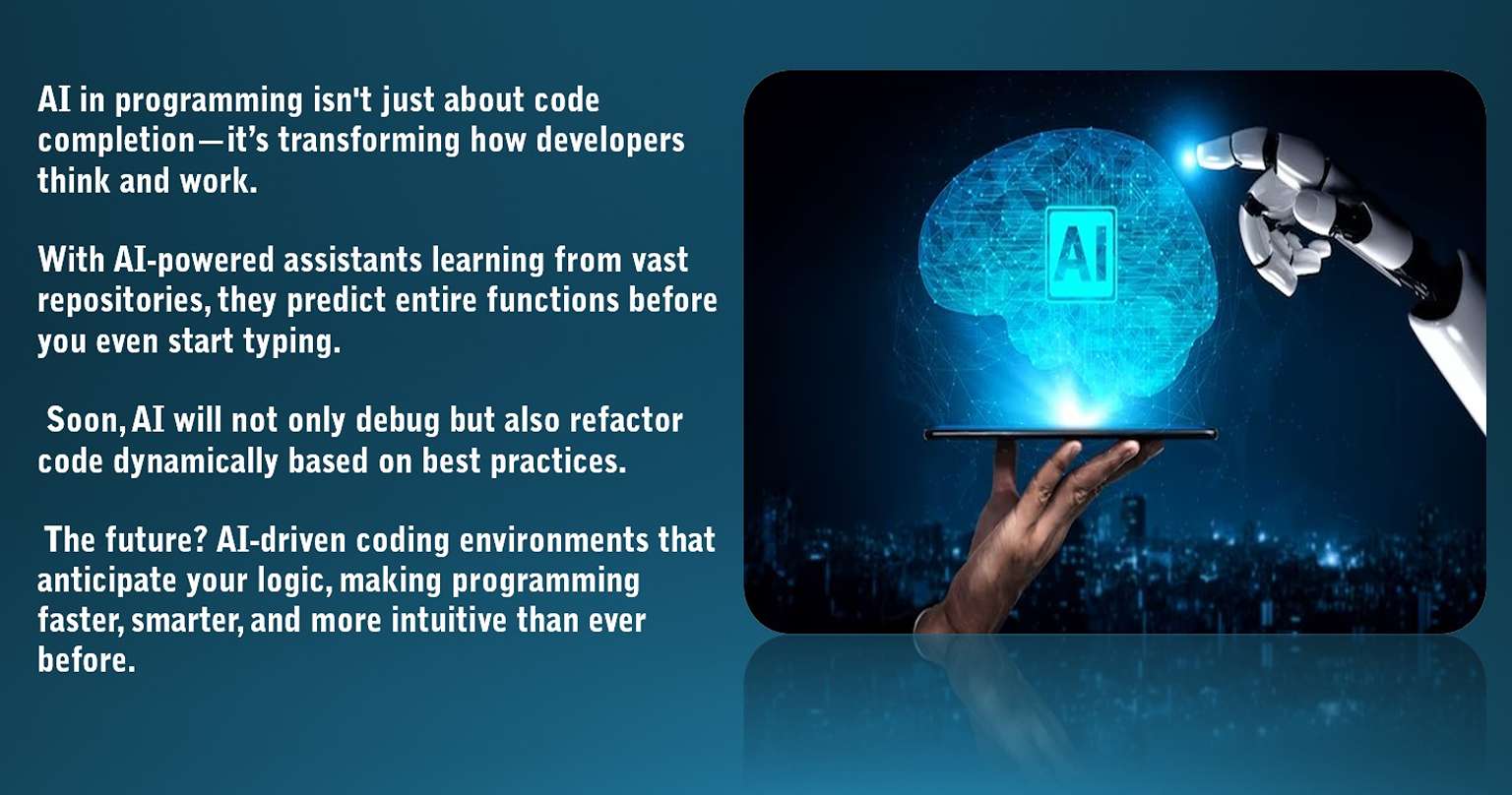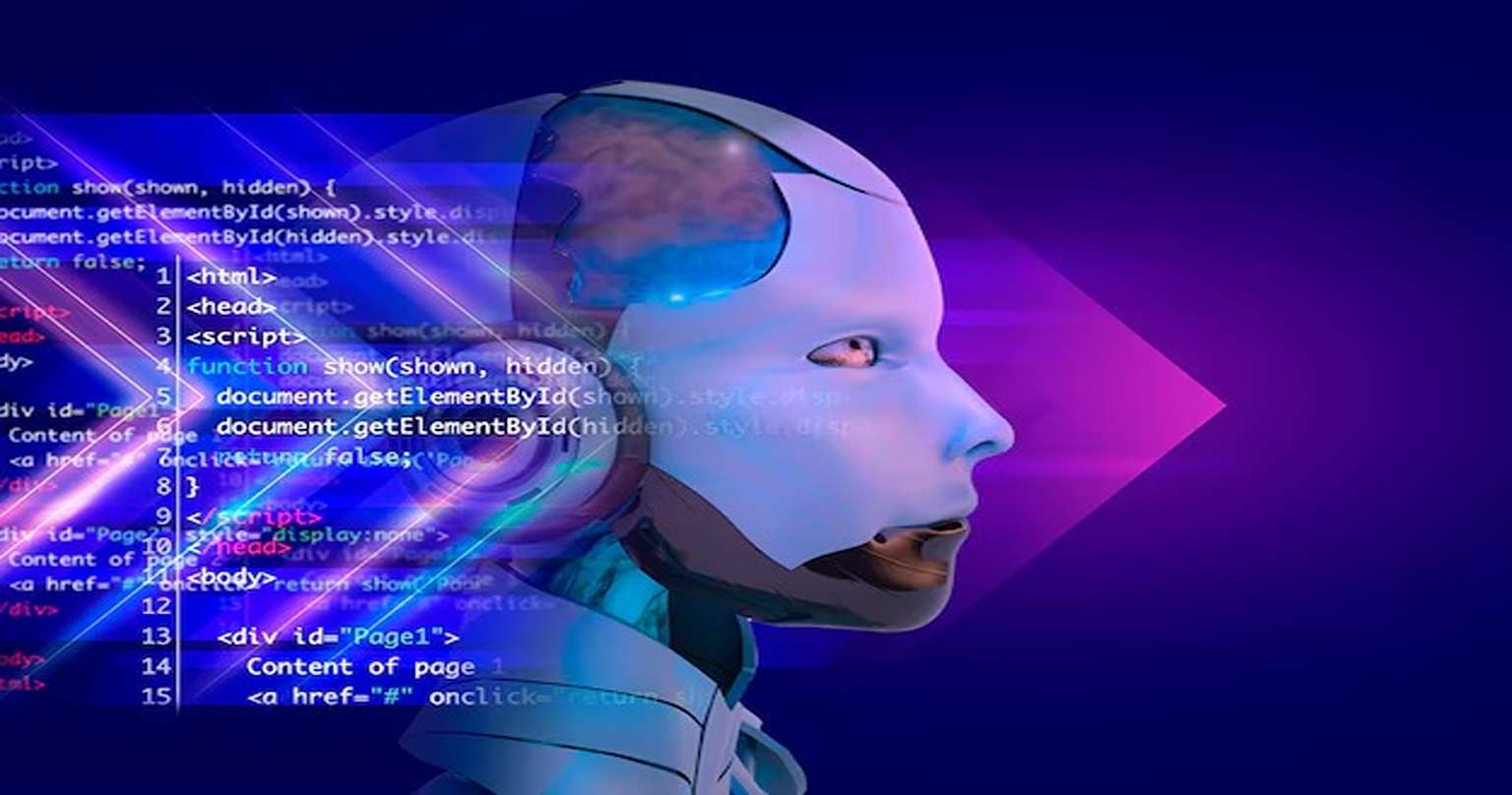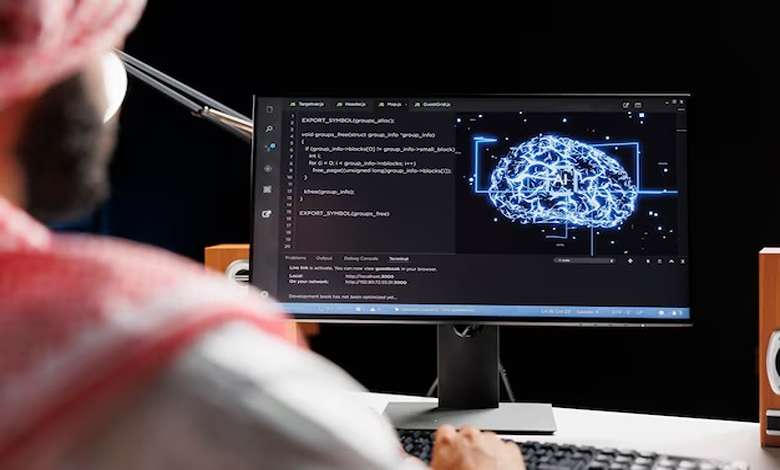Artificial Intelligence (AI) has become a transformative force across industries, and programming is no exception. From automating repetitive tasks to assisting developers in writing cleaner and more efficient code, AI is reshaping the way software is developed. As the demand for faster, more reliable, and scalable software grows, the role of AI in programming has become increasingly significant. In this article, we will explore the Best Artificial Intelligence for Programming, their applications, and how they are revolutionizing the future of code. Stay tuned to kubecodes until the end of the blog.
Introduction to the use of artificial intelligence in programming
AI in programming refers to the use of machine learning (ML), natural language processing (NLP), and other AI technologies to assist developers in writing, debugging, and optimizing code. These tools are designed to enhance productivity, reduce errors, and enable developers to focus on more creative and complex aspects of software development.
The integration of AI into programming has led to the emergence of intelligent coding assistants, automated debugging tools, and even AI systems capable of generating code from natural language descriptions. These advancements are not only making programming more accessible to beginners but also empowering experienced developers to build better software in less time.

Reasons for Using Artificial Intelligence in Programming
Artificial Intelligence (AI) has become an integral part of modern programming, offering numerous benefits that enhance productivity, efficiency, and innovation. Below are some of the key reasons for using AI in programming:
1. Increased Productivity
The Best Artificial Intelligence for Programming, such as code completion assistants, automate repetitive tasks, allowing developers to focus on more complex and creative aspects of programming. This significantly speeds up the development process.
2. Improved Code Quality
AI can analyze code for errors, vulnerabilities, and inefficiencies, providing suggestions for improvements. This leads to cleaner, more reliable, and optimized code.
3. Enhanced Debugging
The Best Artificial Intelligence for Programming can automatically detect and fix bugs, reducing the time and effort required for manual debugging. This ensures faster delivery of high-quality software.
4. Accessibility for Beginners
AI-powered coding assistants help novice programmers by providing real-time suggestions and guidance, making it easier to learn and write code effectively.
5. Code Generation
AI can generate code from natural language descriptions, enabling rapid prototyping and reducing the need for writing boilerplate code manually.
6. Optimization of Performance
Artificial Intelligence for Programming can analyze and optimize code for better performance, scalability, and resource efficiency, which is especially useful for large-scale applications.
7. Personalized Development Experience
The Best Artificial Intelligence for Programming can adapt to a developer’s coding style and preferences, offering tailored suggestions and improving the overall development experience.
8. Cost Efficiency
By automating repetitive tasks and reducing errors, the Best Artificial Intelligence for Programming helps lower development costs and minimizes the need for extensive manual intervention.
9. Innovation and Creativity
AI enables developers to experiment with new ideas and solutions by handling routine tasks, freeing up time for innovation and creative problem-solving.
10. Collaboration and Teamwork
AI tools facilitate collaboration among developers by providing real-time feedback and suggestions, making team-based programming more efficient.
In summary, the use of AI in programming not only enhances productivity and code quality but also makes software development more accessible, efficient, and innovative. As AI technologies continue to evolve, their role in programming will only grow, transforming the way developers create and maintain software.
The emergence of AI-powered coding technology and tools
With the rapid advancement of artificial intelligence (AI) technologies, the Best Artificial Intelligence for Programming in 2025 have reached a level where they not only assist developers in writing code but also significantly improve code quality, reduce errors, and enhance productivity. Below is a list of the best artificial intelligence for programming.
1. GitHub Copilot X
Type: Auto-completion and code generation tool
Supported Languages: Python, JavaScript, TypeScript, Go, Ruby, and over 20 other languages.
Features
- Generates code based on text descriptions or previous code.
- Suggests complete code snippets and even full functions.
- Integrates with Visual Studio Code and other IDEs.
Advantages: Increases coding speed, reduces errors, and supports multiple languages.
Disadvantages: Suggested code may not always be optimal.
2. Tabnine Pro
Type: AI-powered code completion tool
Supported Languages: Over 30 languages, including Python, JavaScript, Java, C++, and TypeScript.
Features
- Code completion based on machine learning patterns.
- Compatible with popular IDEs like VS Code, IntelliJ, and PyCharm.
- Learns from existing code in the project.
Advantages: High speed, compatibility with various development environments.
Disadvantages: Free version has limitations.
3. Amazon CodeWhisperer 2.0
Type: AI-powered code completion tool
Supported Languages: Python, Java, JavaScript, TypeScript, and C#.
Features
- Generates code based on text descriptions.
- Detects insecure code and provides security suggestions.
- Integrates with VS Code and JetBrains IDEs.
Advantages: Supports multiple languages, focuses on code security.
Disadvantages: Requires initial setup
4. Replit Ghostwriter Plus
Type: Code completion and generation tool
Supported Languages: Python, JavaScript, Java, C++, and over 50 other languages.
Features
- Real-time code completion.
- Generates code based on text descriptions.
- Integrates with the Replit development environment.
Advantages: Supports multiple languages, easy to use.
Disadvantages: Limited to the Replit environment.
5. IntelliCode Ultimate (by Microsoft)
Type: AI-powered code completion tool
Supported Languages: Python, JavaScript, TypeScript, Java, and C#.
Features
- Smart suggestions based on coding patterns.
- Learns from existing code in the project.
- Integrates with Visual Studio and VS Code.
Advantages: Compatible with Microsoft tools, precise suggestions.
Disadvantages: Limited support for some languages.
6. Sourcery AI
Type: Code refactoring and improvement tool
Supported Languages: Python.
Features
- Automatically refactors code to improve readability and efficiency.
- Detects repetitive coding patterns.
- Integrates with VS Code and PyCharm.
Advantages: Improves code quality, focuses on Python.
Disadvantages: Limited to Python.
7. CodeT5+ (by Salesforce)
Type: Language model for code generation and analysis
Supported Languages: Python, Java, JavaScript, and C++.
Features
- Generates code based on text descriptions.
- Translates code between programming languages.
- Detects errors and provides improvement suggestions.
Advantages: Supports multiple languages, code translation capability.
Disadvantages: Requires setup and computational resources.

8. Blackbox AI
Type: Code completion and search tool
Supported Languages: Python, JavaScript, Java, and TypeScript.
Features
- Searches public repositories for code.
- Intelligent code completion.
Advantages: Access to sample code, quick suggestions.
Disadvantages: Limited support for some languages.
9. Codeium Pro
Type: AI-powered code completion tool
Supported Languages: Python, JavaScript, TypeScript, Java, and C++.
Features
- Real-time code completion.
- Supports multiple IDEs.
Advantages: High speed, compatibility with various development environments.
Disadvantages: Requires initial setup.
How to Choose the Best AI Tool for Programming?
Choosing the best artificial intelligence for programming depends on your needs, preferences, and goals. Given the variety of tools available, making the right choice can be challenging. In this guide, we’ll explore steps to help you select the best AI tool for programming.
Define Your Needs
Before choosing the Best Artificial Intelligence for Programming, carefully assess your needs. The following questions can help:
- What programming language do you use? Some tools like Kite or Sourcery are designed for specific languages like Python, while tools like GitHub Copilot or Tabnine support multiple languages.
- What is your goal? Are you looking for auto-completion, code refactoring, error detection, or unit test generation?
- What level of customization do you need? Some tools like DeepCode are designed for error detection and code quality improvement, while tools like Replit Ghostwriter focus more on code generation.
Check Supported Programming Languages
Each the Best Artificial Intelligence for Programming may support a limited number of programming languages. For example:
- If you use Python, tools like Kite, Sourcery, or Blackbox are good options.
- If you use Java or Kotlin, Codotaor Amazon CodeWhisperer can be useful.
- If you need support for multiple languages, GitHub Copilot or Tabnine are better choices.
Evaluate the Tool’s Features
Each AI tool has unique features. Some of the most important features include:
- Auto-completion: Tools like Tabnine and GitHub Copilot suggest complete code based on machine learning patterns.
- Error detection and code quality improvement: Tools like DeepCode and Amazon CodeWhisperer detect errors and security issues.
- Unit test generation: Tools like Ponicode and Diffblue Cover automatically generate unit tests.
- Learning from existing code: Some tools like Tabnine and Codotalearn from your project’s code and provide better suggestions.
Check Compatibility with Your Development Environment (IDE)
The Best Artificial Intelligence for Programming should be compatible with your integrated development environment (IDE). For example:
- If you use Visual Studio Code, GitHub Copilot, Tabnine, and Kite are good options.
- If you use IntelliJ IDEA or PyCharm, Codota and IntelliCode can be useful.
- If you use Replit, Replit Ghostwriter is the best option.
Consider Cost and Tool Limitations
Some AI tools are free, but their professional versions may come with costs. Ask yourself:
- Does the free version meet your needs?
- Is the cost of the professional version within your budget?
- Does the tool have limitations, such as the number of lines of code or projects?
Evaluate User Experience and Ease of Use
AI tools should be easy to use and provide a good user experience. To do this:
- Try the tool’s trial version.
- Read user reviews and developer feedback.
- Check if the tool integrates easily with your workflow.
Check Security and Privacy
Some of the Best Artificial Intelligence for Programming may have access to your code. Ensure that:
- The tool follows strong security policies.
- Your code is not shared publicly or unintentionally.
- The tool adheres to privacy standards.
Test the Tool
Before making a final decision about choosing the Best Artificial Intelligence for Programming, test the tool in a real project. This will help you:
- Evaluate the tool’s performance in real-world conditions.
- Identify any issues or limitations.
- Ensure the tool aligns with your needs.
Compare and Make a Final Decision
After evaluating different tools, compare them and choose the best option. You can use the following criteria:
- Support for the programming languages you need.
- Key features that meet your requirements.
- Cost and limitations of the tool.
- Compatibility with your development environment.
Continuous Updates and Improvement
AI tools are constantly improving. After selecting the Best Artificial Intelligence for Programming, stay updated with its new features and updates to benefit from the latest advancements.
The Future of AI in Programming
The integration of AI into programming is still in its early stages, but the potential is immense. As AI technologies continue to evolve, we can expect even more advanced tools that will further enhance the capabilities of developers. Some of the future trends in AI for programming include:
AI-Driven Development Environments: Fully integrated development environments powered by AI that provide end-to-end support for coding, debugging, and optimization.
Personalized Coding Assistants: AI tools that adapt to the coding style and preferences of individual developers, providing highly personalized recommendations.
AI for Collaborative Coding: AI systems that facilitate collaboration among developers by providing real-time feedback and suggestions during pair programming sessions.

Conclusion
Artificial intelligence is revolutionizing programming by automating repetitive tasks, increasing productivity, and enabling better software to be built in less time. From intelligent coding assistants like GitHub Copilot and Tabnine to automated debugging tools like DeepCode and Snyk, using the best AI for programming is essential for developers of all skill levels.
As AI technologies continue to advance, the future of programming looks brighter than ever. By embracing these tools, developers can focus on what they do best—solving complex problems and creating innovative solutions—while leaving the mundane tasks to AI. The best artificial intelligence for programming is not just about replacing human effort but augmenting it, enabling us to achieve more than ever before.

